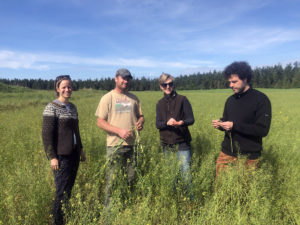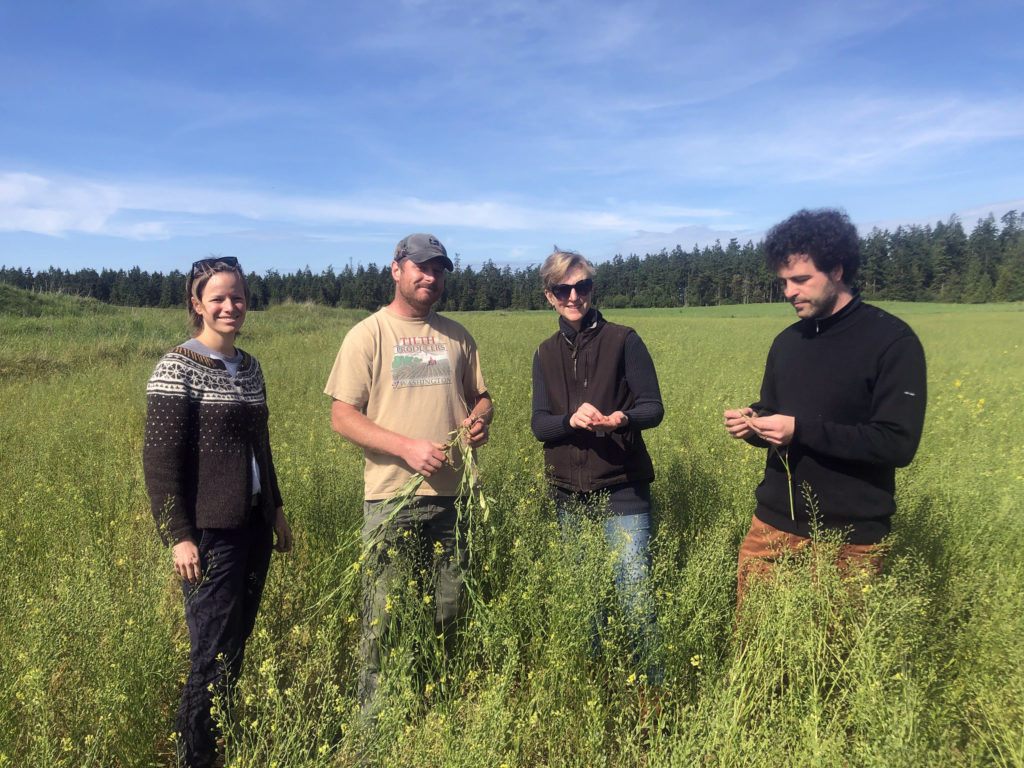
The urgent need to protect and expand genetic diversity and foster ecological seed systems is a call heard around the globe. Organic Seed Alliance’s work focuses on fostering healthy and diverse seed systems in the US and increasingly we find there is much to learn from similar efforts internationally.
In recent years OSA has engaged with our European counterparts in a number of ways, including at the Diversifood Congress last December in France and advising on the EU LiveSeed project (2017-2021). Most recently we hosted researchers from the EU project Dynaversity. In fact, OSA staff across the US — in Wisconsin, Minnesota, and Washington — had the opportunity to connect with the Dynaversity team as they traveled across the country conducting research on US organic seed systems.
The aim of Dynaversity is to explore the role seed networks play in seed conservation to facilitate the exchange and integration of related scientific and practical knowledge. The goal is to better understand how best to manage genetic diversity of seed in agriculture and the broader food chain. Dynaversity researchers Stephanie Kladtke and Corentin Hecquet are conducting 20 case studies in Europe and the US to learn about regional and national seed networks, including those facilitated by OSA. They also visited our plant breeding partners who participate in the Northern Organic Vegetable Improvement Collaborative (NOVIC), a multi-regional breeding initiative focused on organic production in the Northern Tier of the US.
Stephanie and Corentin’s research looks at seed systems from both an agronomic and social science perspective. On their trip to the US, they interviewed farmers, public breeders, and non-profit educators to learn how our projects foster farmer involvement in seed, and to better understand the role of farmer-researcher collaborations like NOVIC in conserving and expanding crop genetic diversity. The visit proved a valuable two-way exchange as they shared stories of European networks working to address challenges in seed policy and regulations that restrict access to seed, such as intellectual property rights. They also shared inspiring examples of storytelling and marketing, including beautiful seed catalogs produced by farmer seed cooperatives that work to decentralize how seed is produced and distributed.
OSA is committed to building our alliances with European seed networks, and to share educational resources, exchange innovative breeding strategies, and foster transcontinental sharing of seed and seed knowledge. We hope the European seed community will be well represented at the 10th Organic Seed Growers Conference from February 12-15, 2020, and we also hope to participate in the next IFOAM Organic World Conference in Rennes, France, in September 2020.


